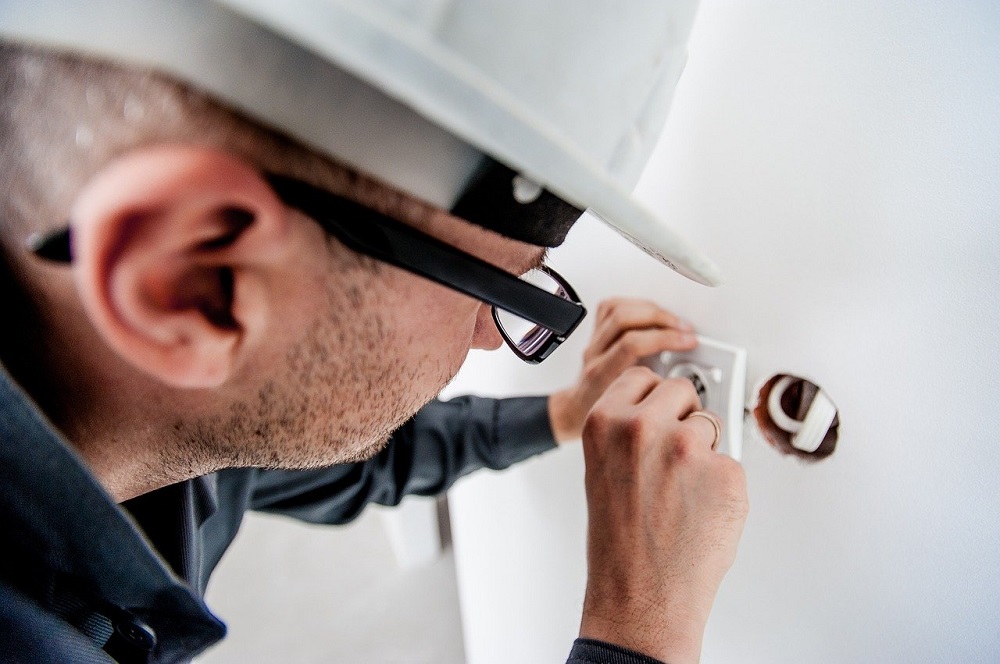Electricity made the world as we know it to be today. With its invention, we’ve been able to make our homes brighter, warmer, or cooler depending on the weather, keep our food fresh longer, and cook it quicker. We’ve been able to use it for entertainment purposes, which means that besides making life more comfortable, it has also made it more enjoyable.
As we use it almost all of the time, homeowners should brush up on electricity and safety measures to ensure that they stay prepared for any eventuality. An example of the importance of learning electrical safety tips is information published by the National Fire Protection Agency (NFPA), which details that between the years of 2012 and 2016, there were almost 45,000 fires started as a result of electrical failure or malfunction. These electrical safety tips will help ensure that you do not become a part of such a terrible statistic.
Check Your Wattage
One of the first places to start is checking that you are using the correct wattage of bulb in all of your fixtures and appliances. Most of the time, the information is listed right on the appliance itself, whether it’s a lamp or a microwave. If the information should be unavailable, and you no longer have the manual, it is safe to go with a 60-watt bulb or less for any light fixtures and 25-watt for any ceiling fixtures.
Stop Overloading
A power outlet is designed to provide only a specific amount of electricity and no more. Due to this limitation, you should ensure that you do not plug in too many things at the same time or something that would overpower the outlet. Were this to happen, the outlet may short out and cause an electrical fire. You can use simple checks to ensure all is in order, such as making sure that the outlets feel cool to the touch, and they all have protective faceplate.
During your inspection, it is best to keep an eye on the number of extension cords that are in use throughout the house. If you find that you have an excessive amount of them snacking around your home, it may be time to talk to an electrician. Be sure that you choose someone that has been appropriately certified with positive reviews to add more power outlets and places you could use them most.
Repair Damage
You should make it a habit to check on any visible electrical cords in your home. A damaged power cord poses a high risk for either starting a fire or being the source of electrocution and should be replaced or repaired immediately. It is also best to try and prevent any damage from happening to the cords in the first place. A good example is extension cords that are either glued or stapled to the floor or wall to keep it out of the way. In either situation, you run the risk of damage to the cord.
Keep Away from Water
By the time we get to adulthood, most of us have seen the warning on a blow dryer that states to keep it away from water. The same warning is true for any other power outlet or cord that you have in your home. As a rule of thumb, keep any type of electrical equipment dry at all times to prevent either the start of a fire or electrocution. Anything such as plants, aquariums, sinks, showers, or tubs are best kept as far away from power outlets as physically possible.
Of course, areas such as the kitchen and the bathroom still require an outlet for various appliances. Remember that any outlet installed in an area that may come in to contact with water needs to be GFCI (ground-fault circuit interrupter) protected as they are designed to shut off power almost instantly should a fault be found.
Electrical Panel and Breakers
An electrical panel works in conjunction with breakers, which are an integral part of your home; therefore, you should get to know them both. As time progresses and technology changes, so does your electrical panel. Even if you do not consider yourself an electrician, it is best to take steps to understand which panel you have installed in your home and whether it is still in good use. Some panels, such as those branded from Federal Pacific, have stopped production due to becoming a fire hazard.
Breakers, as annoying as they can be, can prove themselves to be a trustworthy friend. A breaker that trips indicates that you may have overtaxed the circuit by plugging in too many different appliances. After reconfiguring your devices, if the breaker continues to trip, it is best to call in an electrician who can take a closer look at the problem.
Extinguisher
As a last resort, a fire-retardant chemical fire extinguisher is your only line of defense should a fire start as a result of an electrical short. Water conducts electricity, which would make it useless against an electrical fire and would also place you in greater danger. Read the instructions carefully when you purchase your extinguisher and make sure that you have it accessible should you need to use it. Check on it at least once a year to make sure that it is in working order and has not expired.
